Problems with the nasal valve that lead to difficulty with breathing can be tricky, in terms of both diagnosis and treatment, said a group of experts here at the Triological Society’s Combined Sections Meeting on Jan. 28.
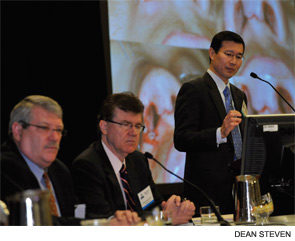

Problems with the nasal valve that lead to difficulty with breathing can be tricky, in terms of both diagnosis and treatment, said a group of experts here at the Triological Society’s Combined Sections Meeting on Jan. 28.
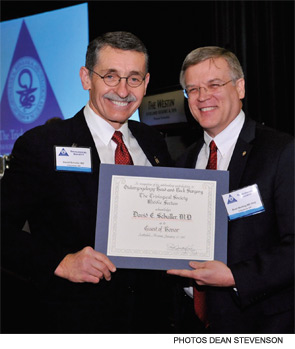
The system of clinical cancer research, including that of head and neck cancer, is in need of an overhaul, but steps are being taken that might lead to more efficient work and will hopefully mean more medical breakthroughs, said David Schuller, MD, the chair in cancer research at the Ohio State University College of Medicine in Columbus, at the Triological Society’s Combined Sections Meeting, held here on Jan. 27.
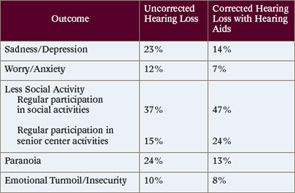
Most people will experience some degree of hearing loss as they age. Statistics from the National Institute on Deafness and Other Communication Disorders at the National institutes of Health (NIH) indicate that 30 percent of adults ages 65 to 74, and 47 percent of adults 75 years or older, have hearing loss.
Recent publication of practice parameters for surgery in adults with obstructive sleep apnea (OSA) by the American Academy of Sleep Medicine (AASM) has set off another round of debate on the need for otolaryngologists to get involved in generating their own guidelines. Although otolaryngologists have yet to agree on whether or not the time is right for guidelines on surgical treatment for sleep apnea, consensus can be claimed regarding the need perceived by the American Academy of Otolaryngology–Head and Neck Surgery (AAO-HNS) to get on the evidence-based bandwagon.
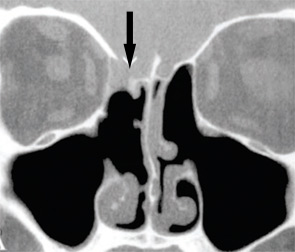
Once the province of neurosurgeons, cerebrospinal fluid (CSF) leak repair is now handled mostly by otolaryngologists. This change has occurred over the past couple of decades, during which time the evolution of endoscopic tools and techniques has made possible extracranial rather than intracranial repair. The success rate for repairing these leaks from below has reached about 90 percent, particularly for small leaks.
Dr. Sims has eloquently identified the value of diversity not only in otolaryngology, but also its contribution to the strength of the U.S. as a nation. Drs. Kuppersmith and Thomas have responded to his editorial indicating steps that the AAO-HNS has taken and is currently taking to increase diversity.
The new duty hour regulation from the Accreditation Council for Graduate Medical Education (ACGME) that limits first-year residents to 16-hour shifts has drawn a conflicted chorus of reactions from attendings, who have only seven months before the stipulation goes into effect.
Allergic rhinitis among the elderly poses a particularly difficult diagnostic challenge for the otolaryngologist. As people age, they undergo immunosenescence. The thymus, which produces T cells against new invaders, atrophies markedly after adolescence, and this decline results in a less robust immune response to bacteria, viruses and presumably allergens (J Pathol. 2007;211(2):144-156). Consequently, physicians have assumed that allergies should decline as people age.
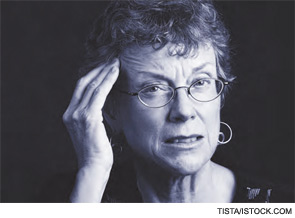
Dizziness is a particular danger among the elderly, but extra care taken by physicians can help ease their problems and help keep older patients functioning, panelists said at the 2010 Annual Meeting of the American Academy of Otolaryngology-Head and Neck Surgery, held here Sept. 26-29.
Arecent study in Archives of Otolaryngology-Head and Neck Surgery on the potential side effects of nasal zinc therapies is the newest staging ground in the debate over how otolaryngologists can advise patients on the benefits of homeopathic treatments in the context of the common cold.